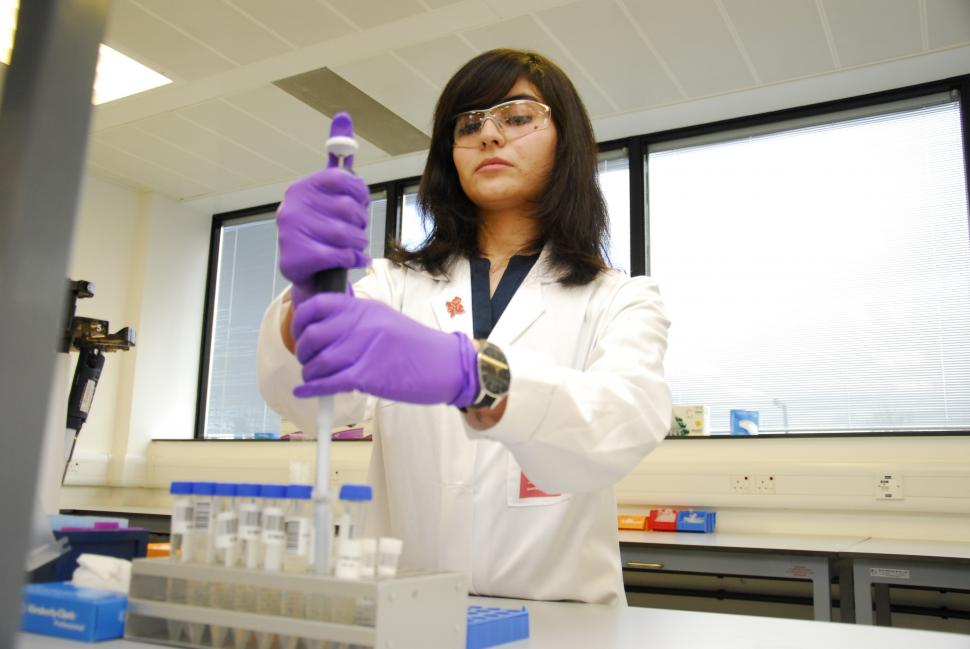- News
- Reviews
- Bikes
- Accessories
- Accessories - misc
- Computer mounts
- Bags
- Bar ends
- Bike bags & cases
- Bottle cages
- Bottles
- Cameras
- Car racks
- Child seats
- Computers
- Glasses
- GPS units
- Helmets
- Lights - front
- Lights - rear
- Lights - sets
- Locks
- Mirrors
- Mudguards
- Racks
- Pumps & CO2 inflators
- Puncture kits
- Reflectives
- Smart watches
- Stands and racks
- Trailers
- Clothing
- Components
- Bar tape & grips
- Bottom brackets
- Brake & gear cables
- Brake & STI levers
- Brake pads & spares
- Brakes
- Cassettes & freewheels
- Chains
- Chainsets & chainrings
- Derailleurs - front
- Derailleurs - rear
- Forks
- Gear levers & shifters
- Groupsets
- Handlebars & extensions
- Headsets
- Hubs
- Inner tubes
- Pedals
- Quick releases & skewers
- Saddles
- Seatposts
- Stems
- Wheels
- Tyres
- Health, fitness and nutrition
- Tools and workshop
- Miscellaneous
- Buyers Guides
- Features
- Forum
- Recommends
- Podcast
news
 London 2012 Anti-Doping Laboratory (picture credit LOCOG)
London 2012 Anti-Doping Laboratory (picture credit LOCOG)UK Anti-Doping retests British riders’ samples in wake of Richard Freeman case
UK Anti-Doping (UKAD) is retesting cyclists’ blood and urine samples in the wake of former British Cycling and Team Sky doctor Richard Freeman being struck off the Medical Register last month.
Freeman, who is the subject of a current UKAD investigation, was struck off after a tribunal ruled that he had ordered Testogel for delivery to the National Cycling Centre “knowing or believing that it was to be administered to an athlete to improve their athletic performance.”
> Ex-Team Sky and British Cycling doctor Richard Freeman struck off Medical Register
According to the Guardian , since 2011 UKAD has conducted retests on 422 blood or urine samples taken from athletes, with one in three of those – 141- being from cyclists, making it the most retested sport.
The vast majority of those retests, 302 of them, have been caried out in the past 14 months, which the Guardian says is due to a combination of retesting cyclists while the Freeman case was ongoing as well as following its conclusion, conducting further analysis of some samples before the 10-year statute of limitations expires, and testing samples from athletes who have competes in previous Olympic Games and who are likely to compete in Tokyo this summer.
A spokesperson for the anti-doping agency told the newspaper: “UKAD began to store samples for reanalysis in 2011. Over the last 10 years, 422 samples have been retested, including 32 samples that have been analysed more than once. Of those, 141 retested samples were taken from cyclists, with several undergoing repeat testing.”
The spokesperson defended the decision to only step up retesting in the past year or so, which counterparts in other countries had already been doing, saying: “Comparisons with other anti-doping organisations and their reanalysis rates does not offer an accurate assessment of a successful programme.
“UKAD’s reanalysis strategy is evidence-based and guided by the support from the scientific community.
“When to reanalyse a sample is a decision which involves consideration of many factors including specific intelligence reports, developments in science and technology to detect prohibited substances, and significant upcoming competitions.”
The organisation itself is currently being investigated by the World Anti-Doping Agency after it emerged at the weekend that after a “prominent” member of the Great Britain Cycling Team had tested positive in 2010 for an elevated amount of the steroid nandrolone, with a UKAD employee allegedly permitting British Cycling to carry out its own retests on athletes.
Simon joined road.cc as news editor in 2009 and is now the site’s community editor, acting as a link between the team producing the content and our readers. A law and languages graduate, published translator and former retail analyst, he has reported on issues as diverse as cycling-related court cases, anti-doping investigations, the latest developments in the bike industry and the sport’s biggest races. Now back in London full-time after 15 years living in Oxford and Cambridge, he loves cycling along the Thames but misses having his former riding buddy, Elodie the miniature schnauzer, in the basket in front of him.
What this research is lacking is any evidence as to how often cyclists hit any sort of bollard - I've never seen it happen. Unless it's actually a...
A bit like underarm, surely?
Hopefully the new device is a big success, but wahoo do have a lot work to do in terms of convincing that their quality control has improved. ...
Agree that the moaning comes from a place of priveledge and ultimately "if only there weren't so many other people driving"....
Have added some clarification....
I was tempted to try Galibier gloves but opted for Endura Freezing Point from LBS last year. Not cheap (£60, I think). I'd prefer a shorter cuff...
I can't wait that long! Here's a series that any good vlogger / 'grammer would surely recognise....
At 2.30pm on Saturday a small hatchback car "came to rest on its side in a precarious position" near the hamlet of Ratlinghope on the west side of...
I do wonder if Highway Planners and Councils understand all the implications of putting in traffic calming measures. They certainly take no...
How long before some waste of DNA complains about them on the footpath ... or for Grimsby [and the other shit-tips] to ban them ...